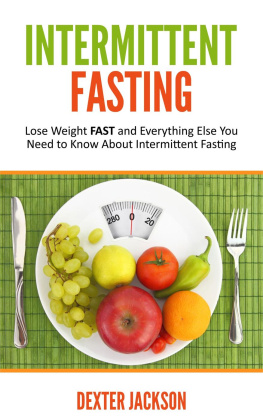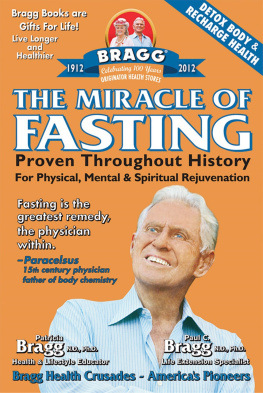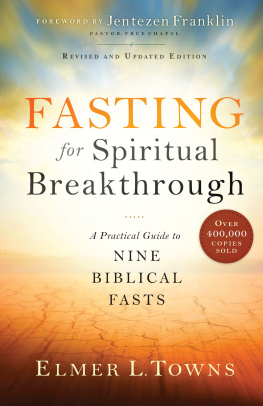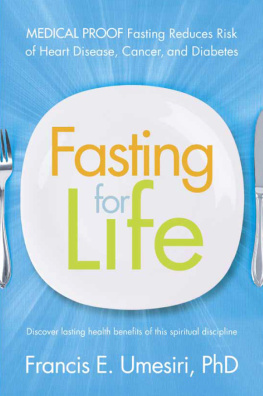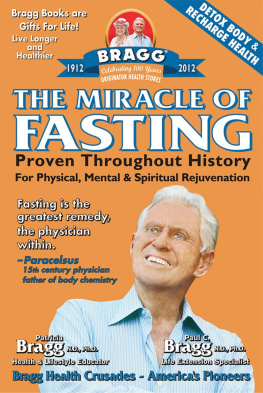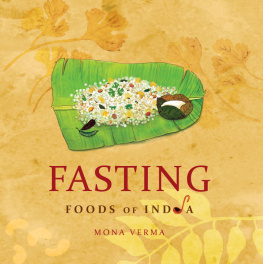PROF. ARNOLD EHRET'S
RATIONAL FASTING FOR PHYSICAL, MENTAL, AND SPIRITUAL REJUVENATION:
INTRODUCED AND
EDITED BY PROF. SPIRA
Prof. Arnold Ehret's
RATIONAL FASTING
For Physical, Mental, and Spiritual Rejuvenation
By Prof. Arnold Ehret
Introduced and Edited by Prof. Spira
With Articles by Fred Hirsch and Teresa Mitchell

Copyright Breathair Publishing 2014
Columbus, Ohio
First Edition
Copyright 2014 by Breathair Publishing
All rights reserved. No part of this publication may be reproduced, distributed, or transmitted in any form or by any means, including photocopying, recording, or other electronic or mechanical methods, without the prior written permission of the publisher, except in the case of brief quotations embodied in critical reviews and certain other noncommercial uses permitted by copyright law. For permission requests, write to the publisher, addressed "Attention: Permissions Coordinator," at the email address below.
Email: info@mucusfreelife.com
General Disclaimer: The content found in this document and related websites is based upon the opinions and research of the authors and is strictly for informational and educational purposes only. If you choose to use the material in this book on yourself, the authors and publishers take no responsibility for your actions and decisions or the consequences thereof. The content is not intended to replace a one-on-one relationship with a qualified health care professional and is not intended as medical advice. It is intended as a sharing of knowledge, information about health, and opinions based on the research and experiences of the authors and their collaborators.
Breathair Publishing
Columbus, Ohio
Available from www.mucusfreelife.com, Amazon.com, Kindle, and other retail outlets
Printed in the United States of America
First Edition, 2014
ISBN-13: 978-0-9906564-7-0
ISBN-10: 0-9906564-7-0
www.mucusfreelife.com
Contents
Discover other titles by Breathair Publishing
The Definite Cure of Chronic Constipation and Overcoming Constipation Naturally: Introduced and Edited by Prof. Spira
Coming Soon
Fasting is the omnipotent healing modality for animal life. It is a natural and (should be) an instinctual part of life. Yet, nothing is mired in more controversy, misinformation, and miseducation than the subject of fasting. Today, there is little consensus among natural health seekers and practitioners as to what truly constitutes fasting. For some, a diet of mucus-free fruits and vegetables (the mucusless diet) may be considered a level of fasting. For others, a liquid diet of fruit and vegetable juices is a fast. Some assert that consuming only water is true fasting. Yet, others say that dry fasting (no liquids or solid food) is the only real way to fast.
We need not look any further than the works of Prof. Arnold Ehret to find a rational and practical approach to understand what fasting is and how to do it. Ehret does not have a strict or dogmatic definition of what fasting is and is not. In this book, as well its companion text Mucusless Diet Healing System , Ehret discusses a spectrum of fasting experiences, including water, juice, and all-fruit dieting. As a general definition, Ehret asserts that fasting is "simply eating less."
The word "fast" means to abstain from or restrict the intake of drink and/or food for a period of time. It may also refer to various forms of dietary restriction, which include abstaining from solid foods (juice or liquid fasting), mucus-forming foods (mucusless diet), animal products, and so forth. Fasting is a dynamic concept and may also refer more broadly to abstaining from modern conveniences or unnatural additions, for example, a fast from electricity or the use of electronics for a period of time. In addition to health and healing purposes, various forms of fasting have been a part of many spiritual and religious traditions. Christianity, Judaism, Jainism, Buddhism, Hinduism, Taoism, Islam, Ancient Egyptian Mystery Schools, and more all have strong fasting traditions and many propagate various forms or degrees of fruit dieting.
From Ehret's perspective, fasting for humans in our current pathological conditions is a relative proposition. Ultimately, it is important to understand the various levels of fasting available to you. What fasting is for one person's body may not be the same for someone else. As Ehret implied, for some, just eating a mucusless or a fruit-only diet could be a level of fasting. And what is and is not fasting to a person's body may shift over time as a person's physiology changes. To determine which fasting regimen is right for you, it is essential to understand the content within this book, which remains the quintessential book on the subject. Through dedicated study and practice you will learn to fast safely and effectively in order to overcome and prevent a myriad of physical and mental illnesses.
Fasting as an Art Form
Fasting may be viewed as a grand art form. There is much more to fasting than merely going without food or drink. Learning to begin a fast properly is very important. Transitioning from a poor to an improved diet before initiating a fast can allow the process to be much more effective. Understanding the role of colon irrigation (enemas) in relationship to fasting is vital. As you begin, it is important to consider the following questions: What is the amount of uneliminated waste in your bowels? Do you have a uric-acid/lean body type or a fatty/mucus body type? (See the for more on body types.) What is the nature of the uneliminated fecal matter still encased in your bowels? Is it made up of the residue of pus-forming foods such as meat and dairy products? Or, are your internal impurities the residue of plant-based, mucus-free foods such as fat- and starch-free fruits and vegetables? Answers to these questions will help you intuitively make rational decisions before, during, and after the fasting process.
There is no greater task within the fasting arts than the ability to eloquently break one's fast. Fasting too long for your physiological condition only to uncontrollably break it with mucus-forming foods is futile and defeats the purpose of your fast. This is one reason Ehret emphasized "gradual change" toward cleansing mucus-free foods, combined with a series of short, intermittent fasts, for newcomers to fasting and the mucusless diet. As you gain experience with short-term fasting, you will learn how to maintain total control whenever you begin or break a fast of any length.
Do not feel as if you need to do long dry, water, or juice fasts if you are not physically or mentally ready. Strive to do rational fasts based on the needs of your own body. You need not prove anything to anyone, and fasting is not a competition to see who can be food-free for the longest period of time. A lot of people play basketball, but few people think that they should be able to play like Michael Jordan without serious practice and long-term dedication. Many people play music, but few expect to have the virtuosity of a jazz or concert pianist in a matter of weeks. It takes years of dedicated practice to attain the highest levels of any art form. Yet in dietetics, health seekers often feel as if they should be able to skip over the transitional process and sustain long fasts without dedicated practice. Long-term fasting may be a worthy goal, but it should be achieved through fervent practice over a long time. As Ehret pointed out, most people are far too obstructed with mucus, pus, and toxemias for long-term fasts to be very beneficial.
Concepts and approaches similar to that of a 21-day cleanse are problematic and should be avoided. Many people pursue such "cleanses," looking for a quick fix for losing weight or overcoming a particular ailment. Yet, as Ehret says, ill health issues will continue to emerge as long as a person continues to eat poorly after a fast. In this book, Ehret offers the most rational approach to fasting that can easily be adopted as a regular part of life. When fasting and mucusless diet are applied properly, you can permanently transform what foods you desire. Instead of relying on willpower to avoid wrong foods, you will begin to crave more of the right foods.
Next page

